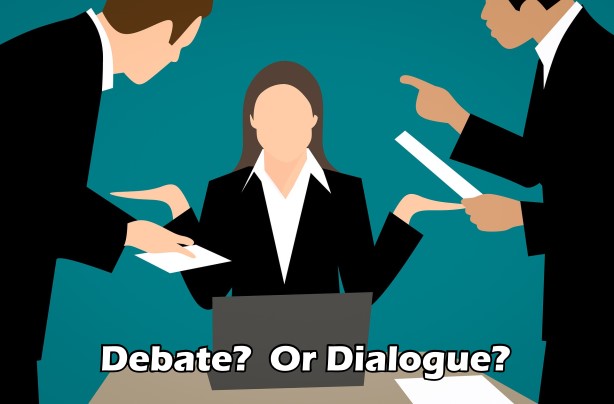When your children are hurting–at any age–it’s tough. No parent wants to see their children suffer, and yet it happens because we live in a world with a lot of disappointment and brokenness. What can you do as a parent when it happens? Much could be said in response. Here are seven actions to consider:
First, strike a balance between shielding them and sheltering WITH them.
Pain in this world is inevitable. Our children need to learn that life will be hard and disappointing, sometimes profoundly so. At the same time, we want them to learn they don’t have to go it alone. All trauma has a damaging effect on a person. What makes it worse, however, is when they feel alone, when they have no one to cry or talk with about what happened.
If a child is abused, if a child’s parents divorce, if they lose a friend or experience any other kind of loss, the pain is very real. What paves the way for healing is having someone(s) to walk with them through the hurt. As parents, we do our best to shield them, but more importantly, we must be careful to shelter WITH them–we must get into their world to be with them. Let them know they are not alone.
Second, when your children are hurting, help them name what they are feeling.
This can be hard for children and adults. We often act out our feelings rather than name or talk about them. Naming our feelings brings definition to our experience. This then opens the door to understanding ourselves and invites others to as well.
Are your children sad, mad, scared, disappointed, or hurt? Use these words when talking with them and any others that would most accurately define their experience. Doing so will be a further part of their healing experience as we all want to be understood.
Third, once you name their feelings, be sure to validate them.
We have all had questions at times about our feelings or the degree to which we felt them. Are we crazy for feeling what we are feeling? Being too sensitive? Just a wimp? Shouldn’t I be stronger? Are my feelings ok? Will I be shamed for feeling them? When should I be over them? And on and on. What we all want is someone to come alongside to simply validate our experience. We are looking for words like:
- “it’s Ok.”
- “We are with you.”
- “We understand.”
- “I am mad too.” (or sad, or scared, or hurt, etc.)
- “I would feel that way if I were you.”
Having someone validate our feelings further alleviates our sense of aloneness, and allows us to move one step closer to healing in that we settle in to our experience rather than fight against it. What has occurred has occurred. There is no way to undo it. We must feel what we feel. This is just as true for us as adults as it is for our children. To the degree we validate our children’s feelings even by talking to them about our feelings, it helps to heal…over time.
Fourth, help guide their thinking.
Often times when painful events or losses occur, one’s thinking can become quite distorted. We had our home broken into a little over a year ago. It took quite some time before my mind was more at peace and my thoughts more normal whenever we would leave the house or go to sleep at night. For children going through a divorce a mom might have to answer questions in their minds like, “If daddy doesn’t want to be with us anymore, will you stop wanting to be with us too?”
Much could be said about distorted thinking. Just know that it happens to us all, adults and children alike. Listening to when your children are hurting and asking what they are thinking gives us the opportunity to help steer their thinking in a healthy direction.
Fifth, when your children are hurting, be patient with the process.
There are many factors that determine how long a child will feel pain from a difficult experience in life and what the long term effects will be. Be careful to not let your pre-conceived ideas be the deciding factor. It will likely be different than whatever you think. It has never helped me when someone said I should stop being angry, or I should be over it by now. That won’t help your children either. Be patient–for as long as it takes, staying focused on each of the above steps, rather than pushing them to “get over it.”
Sixth, keep up with life as best as you can.
Whereas I just said to be patient with the process, we still have to keep up with life. Children still need to get up and go to bed at regular hours, eat, and go to school, help around the house, etc., and have time for fun. Yes, fun. Even in the midst of difficult times, whenever possible, it is good to take breaks from grieving and have some levity. It gives forth an underlying message that though what we have gone through is tough, perhaps REALLY tough, we are not ruined, we are still together, and we will get through this.
One word of caution, however, be careful that you do not assume or indicate to your children, that once laughter occurs or other matters have been attended to, that everyone is over the event. This is seen as a reprieve, not an end to the hurt that has occurred. You will likely experience many times when you go back and forth between feelings expressed needing to be validated and times of reprieve. It is all part of the healing process.
Seventh, seek help from others.
Even when taking all the above action steps, it is always good to consider what outside help is available. This can be family, friends, church, a counselor, etc. We live in an era where we are blessed with so many resources. For followers of Christ, we have the assurance that He is always with us, that He will comfort us, and provide in time of need. Teaching this to our children is another way to help them heal.
Whereas we might be hesitant at times to express need to others, giving way to that hesitation may hinder us from finding some key help in the process. Reach out and seek help!
A final note:
As I wrote the above, I had many scenarios in mind, not the least of which of course is the challenge everyone of us is facing right now with the Corona Virus. This is a world-wide traumatic experience playing out in all kinds of various degrees across our nation and the world. Adults and children alike have been affected.
With my wife and daughter being grade school teachers, we are hearing how many children are sad they can no longer attend school. They didn’t even say good-bye to friends or teachers. In every respect, this is a good time for us all to be practicing everything I have written!
–Mark Oelze
PLEDGEtalk.com
Questions? Leave a comment below and let me know your thoughts!
For more tips on how to walk through this life click this link… https://pledgetalk.com/tips/

